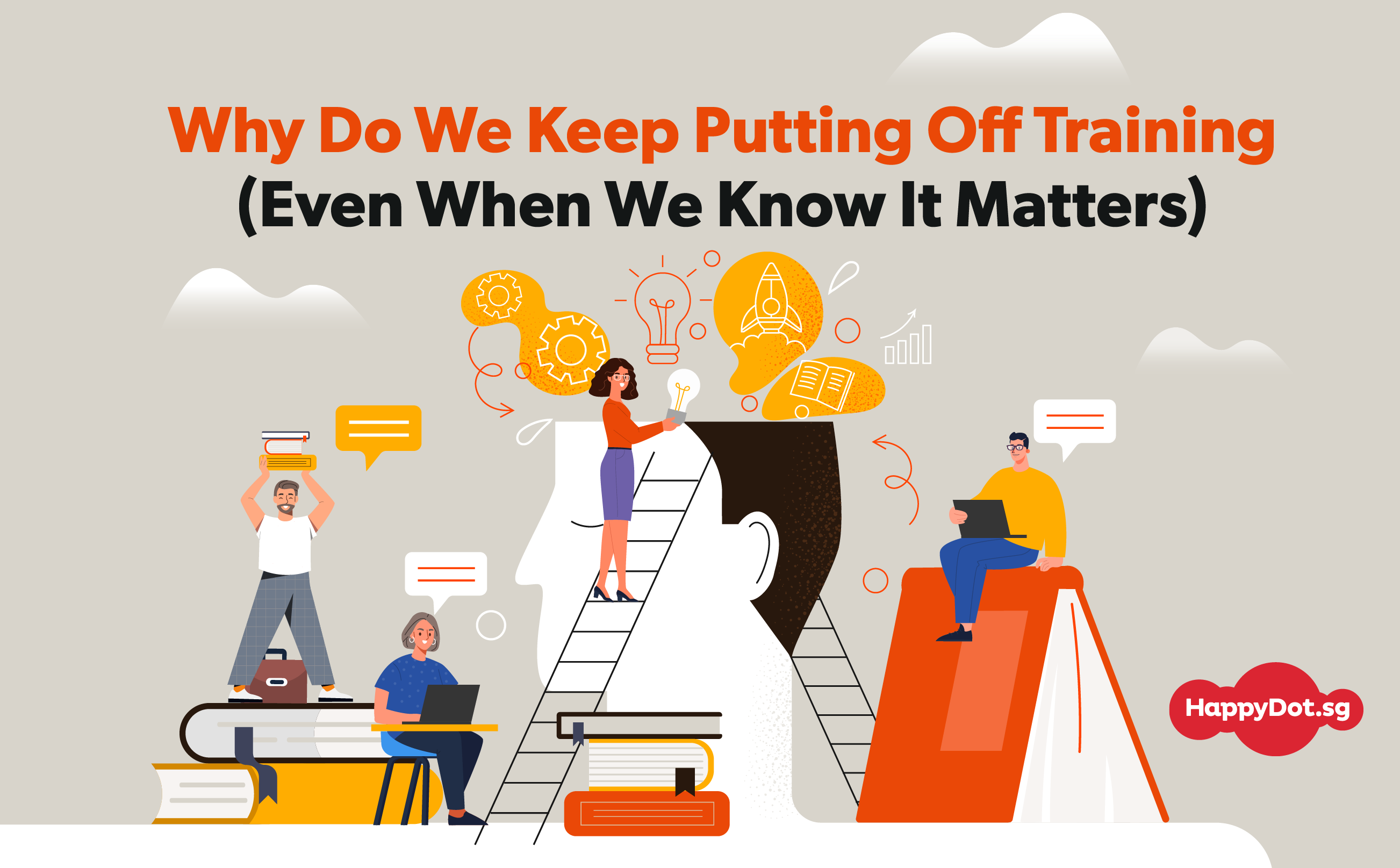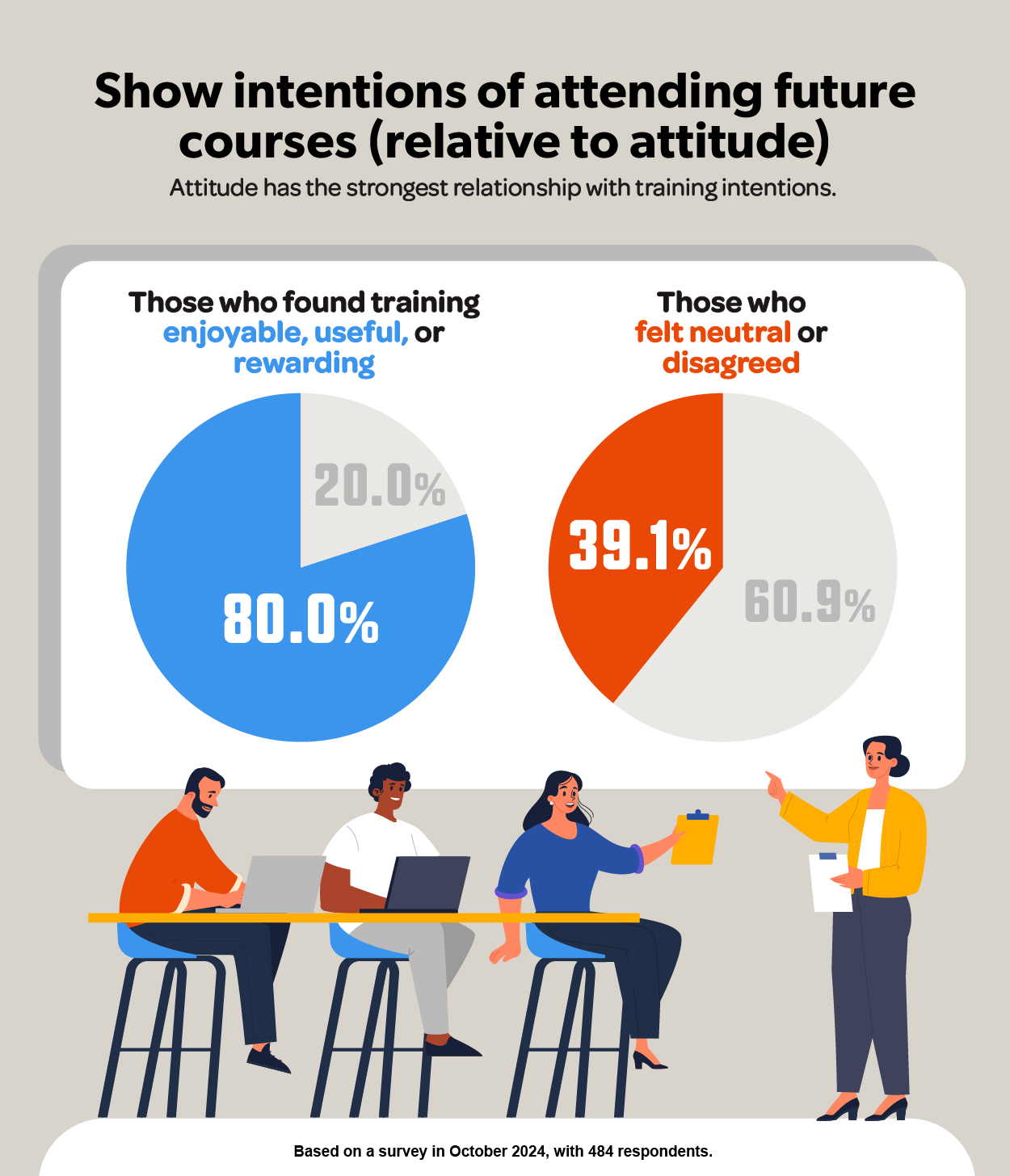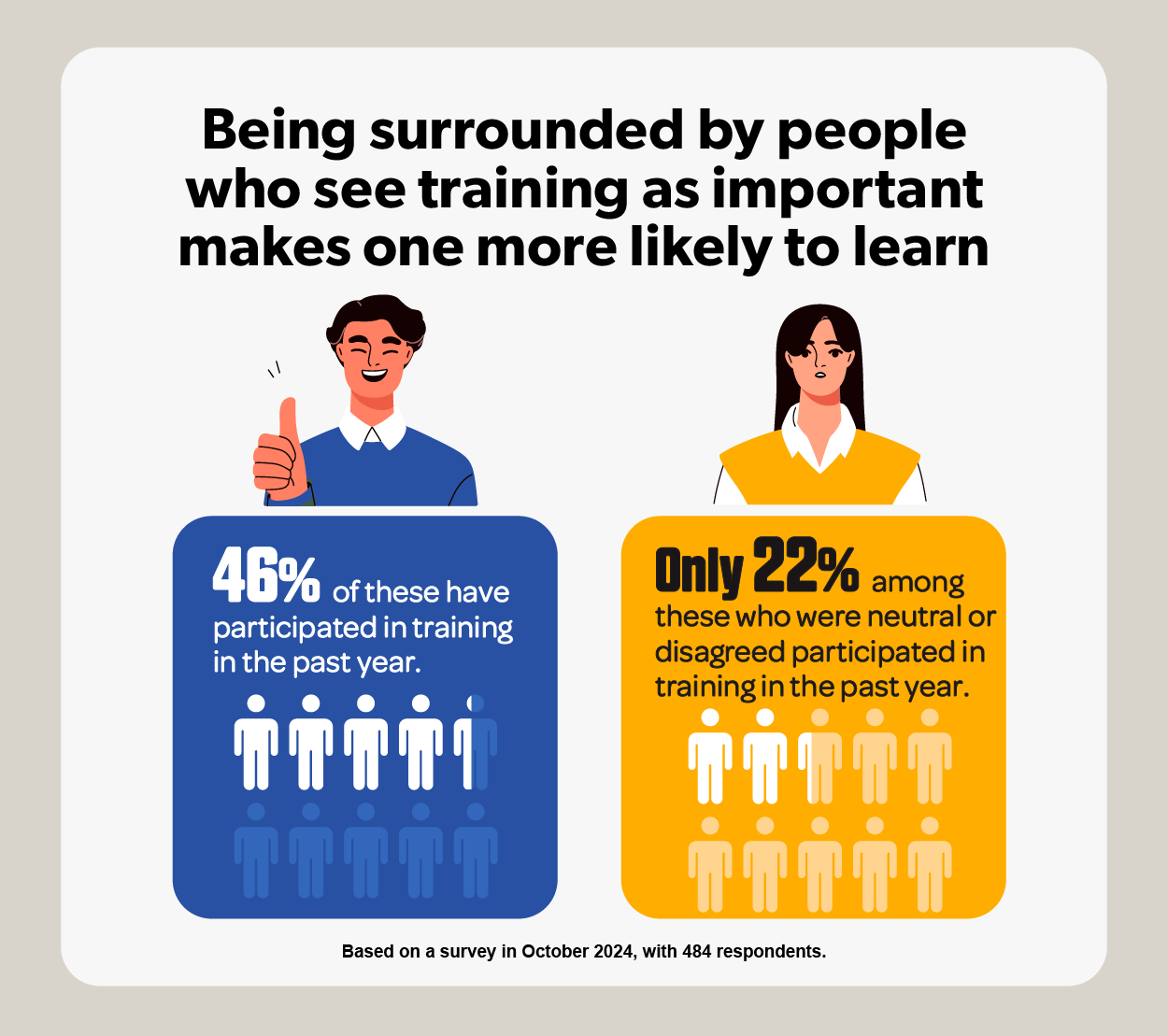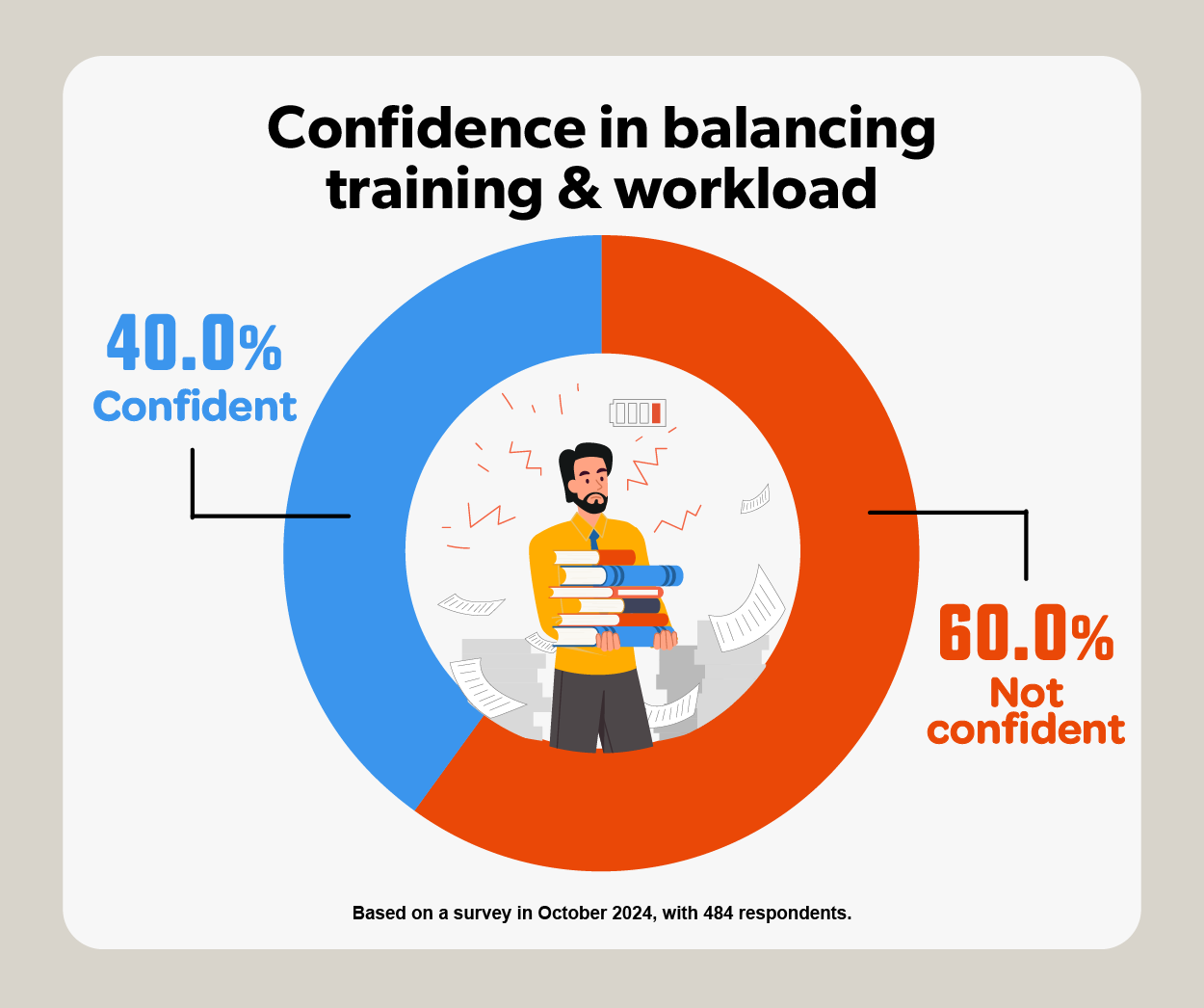Why Do We Keep Putting Off Training (Even When We Know It Matters)

Technology moves fast—faster than most of us can keep up with. From AI assistants to self-checkout kiosks, Industry 4.0 is reshaping how we work in Singapore. “Upskilling” has become more than a buzzword; it’s now essential to staying relevant in today’s workforce.
Yet here’s the thing: most of us already know training is important. So why does actually signing up for that course still feel so hard?
A recent study involving 484 working adults of HappyDotters revealed something interesting.
Nearly 8 in 10 respondents agreed that continuous training is essential to stay employable. But when it came to action? Less than half (46%) had taken part in any formal or informal training in the past year.
So what’s really holding us back?
It’s Not That We Don’t Care—It’s How We See Training
When it comes to learning, attitude matters more than access.

Our data shows that 80% of HappyDotters who found training positive (enjoyable, good, worthy, useful, advantageous or rewarding) to their work reported strong intentions to attend future courses. Compare this to just 39.1% among those who were neutral or disagreed.
Statistically, attitude showed the strongest relationship with training intention, which is stronger than both social influence and perceived ability to participate.
In other words, when we genuinely believe that training will improve our work performance or career prospects, we are far more motivated to take action.
If we can help workers connect learning to their personal goals and not just company objectives; upskilling stops feeling like a mandatory checkbox and starts feeling like real progress.
We Care More About What Others Think Than We Realise
Here is something most of us can relate to: We don’t just learn alone. We learn together.

HappyDotters who were surrounded by people who valued training for career growth were significantly more likely to have participated in training over the past year (46%) compared to those whose social circles were neutral or disagreed. (22%).
In workplaces where supervisors or peers actively encouraged participation, training intention jumped by nearly 30%. This shows how powerful social influence can be in shaping our choices.
It is the same reason we finally start exercising when friends drag us along. When the people around us talk about growth and development, we feel inspired (or gently guilted) to join in.
The next time your colleagues chat about a new course, it’s not just casual pantry talk. It could be the push someone needs to kickstart their own learning journey.
Confidence Isn’t the Deciding Factor (Surprisingly)
You might assume that people with higher self-confidence or those with more time and resources would be the first to sign up for training.
The data says otherwise.

Despite 40% of these HappyDotters saying they felt confident about balancing training with their workload, this confidence did not translate into action. There were no significant differences in training participation between those who felt empowered to make their own training decisions and those who did not.
Statistically, “perceived behavioural control”—the sense of having enough time, resources, or ability—did not play a significant role in predicting training intention or behaviour.
What this suggests is that feeling capable is not what drives people to act. Instead, participation seems to come from whether they believe the training is personally valuable, and whether the people around them encourage it.
While confidence matters in many areas of life, when it comes to upskilling, it is the why and the who around us that make the real difference.
What Does This Mean for Singapore’s Workforce?
At its heart, Singapore’s upskilling challenge is not about having too few courses or insufficient funding.
It’s about belief, relevance, and community.
To build a workforce ready for the next wave of change, we need to make learning feel worthwhile, shared, and human by:
- Framing training as a personal investment, not an obligation.
- Building supportive learning cultures.
- Talking openly about change.
Learning becomes meaningful when we do it together, not alone. When upskilling stops being a chore and starts becoming a choice, that’s when real transformation happens.
What do you think? Do your peers influence how likely you are to take up training?
Share your views on ongoing social issues in Singapore through our surveys and check out fresh insights of What Singapore Thinks every month!
Mingle with other HappyDotters! LIKE our Facebook and FOLLOW our Instagram to know more about us.
